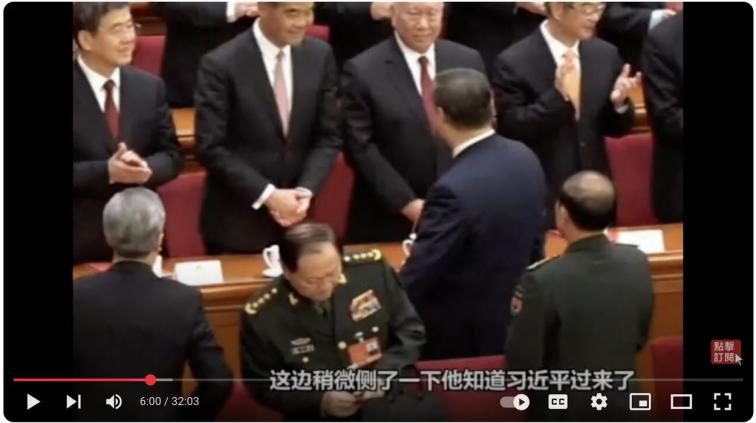The House Select Committee on the Chinese Communist Party holds a hearing titled “Hong Kong as a Haven for CCP Money Laundering and Sanctions Evasion.” (Sept. 18, 2025 / VOA)
[People News] On Thursday (Sept. 18), the House Select Committee on the Strategic Competition Between the United States and the Chinese Communist Party held a roundtable discussion focusing on what lawmakers and experts described as Hong Kong’s expanding role in money laundering and evading international sanctions. They said these activities are benefiting America’s adversaries.
According to Voice of America, the committee chairman, Republican Congressman John Moolenaar of Michigan, said at the meeting that Hong Kong “was once a proud international financial centre,” but now is “increasingly becoming a haven for illegal activities connected to the CCP.” He warned that the city’s “murky financial system, combined with massive cross-border capital flows from mainland China, has made it a magnet for criminal activity,” adding that it has become “a trading hub helping sanctioned regimes, including North Korea, Russia, and Iran, to access the global financial system.”
Human rights lawyer Samuel Bickett described Hong Kong at the roundtable as “a central artery for sanctions evasion,” citing customs data and case studies. “After Russia launched its invasion, Hong Kong’s shipments briefly declined, but then surged,” he said. “In just the first five months of 2023, Hong Kong exported $750 million worth of items on the Common High Priority List—precisely the goods most critical to Russia’s war machine.” He called for stronger enforcement, including more resources for the U.S. Department of Commerce’s Bureau of Industry and Security (BIS), as well as “secondary sanctions on banks funding illicit trade.”
Jamestown Foundation researcher Sunny Cheung said at the roundtable that Beijing has “systematically transformed Hong Kong into its engine of global capital and influence.” He argued that in peacetime, “Hong Kong is Beijing’s capital engine,” while “in wartime, Hong Kong could become the CCP’s financial fortress.” He pointed to the large number of Chinese companies listed in Hong Kong and the city’s role as the largest offshore renminbi hub, saying this helps the CCP “build a parallel financial highway to evade sanctions and attempt de-dollarisation.”
Kimberly Donovan of the Atlantic Council said at the roundtable that Hong Kong “has become a channel for financial transactions between Chinese banks and sanctioned countries such as Iran, Russia, and North Korea.” She noted that the U.S. has repeatedly taken action against individuals and entities headquartered in Hong Kong, and recommended expanding intelligence collection, strengthening engagement with governments and the private sector, and imposing “targeted financial sanctions on individuals and entities engaged in money laundering and sanctions evasion in Hong Kong.”
Moolenaar said the committee will examine policy responses “ranging from stricter financial transparency to stronger enforcement and international coordination,” stressing that the United States “must ensure Hong Kong cannot become Beijing’s backdoor for illegal financial operations.” He added: “The United States will not stand by while the CCP and its proxies exploit the financial system to fund repression, corruption, and aggression.” △











News magazine bootstrap themes!
I like this themes, fast loading and look profesional
Thank you Carlos!
You're welcome!
Please support me with give positive rating!
Yes Sure!